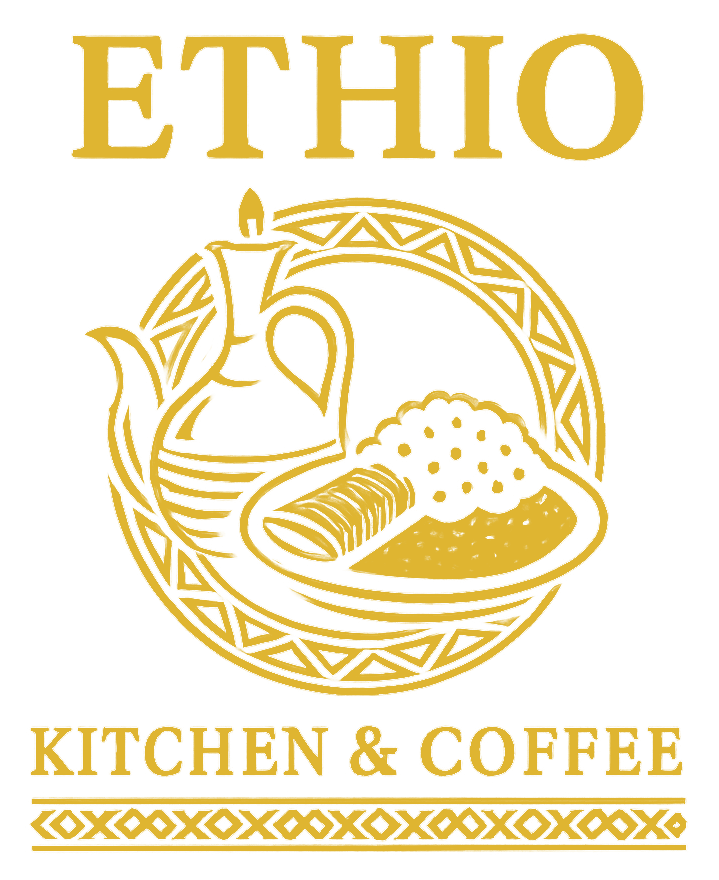Discover Ethiopia Through Coffee and Cuisine
Ethiopia – The Birthplace of Coffee
Coffee is more than a drink in Ethiopia. It is a way of life, a sacred tradition, and a gift we proudly share with the world. The word "coffee" itself comes from the Ethiopian region of Kaffa, where legend says a young goat herder named Kaldi first discovered the energizing power of the coffee bean over a thousand years ago.
In Ethiopia, coffee is called "bunna", and preparing it is an art and ceremony – a ritual of community, connection, and hospitality. The traditional Ethiopian coffee ceremony is an essential part of daily life, especially when guests are welcomed into a home.
The process begins with green coffee beans, freshly roasted over an open flame until their rich aroma fills the room. The beans are then ground by hand using a mortar and pestle and brewed in a traditional clay pot called a jebena. Coffee is served in three rounds: abol (first), tona (second), and baraka (third) – each one symbolizing deeper friendship and blessing.
The ceremony is slow and meaningful. Often accompanied by burning incense, popcorn, or roasted barley, it's a moment to pause, talk, and reconnect – something deeply spiritual and social. When you sip coffee at Ethio Kitchen & Coffee, you're tasting more than a beverage – you're experiencing centuries of culture, care, and community.
Ethiopian Food – A Feast of Flavor and Tradition
Ethiopian cuisine is bold, beautiful, and built around sharing. Meals are not eaten alone – they are enjoyed together, gathered around a large tray of injera and richly spiced dishes. It's not just food – it's family.
Injera is the heart of the meal – a soft, slightly tangy flatbread made from teff, the world's smallest grain. Teff is gluten-free, rich in nutrients, and native to Ethiopia. Injera is both plate and utensil – pieces are torn by hand and used to scoop up stews and vegetables, connecting you directly to your food.
The flavorful stews, called wot (or wat), are cooked with love and time. They range from spicy red lentils (misir wot) to tender beef stew (key wot) to slow-simmered collard greens (gomen). Many dishes are seasoned with berbere – a bold spice blend made from dried chili peppers, garlic, ginger, and warm spices – and niter kibbeh, a spiced clarified butter that gives food a deep, aromatic richness. Ethiopian cuisine also embraces fasting traditions, which have led to an incredible variety of vegan dishes. On fasting days (often Wednesdays and Fridays, and during religious holidays), no animal products are consumed. This has created a rich tradition of plant-based cuisine, full of flavor, texture, and variety. Food in Ethiopia is meant to be shared. Eating with your hands, feeding one another (a gesture called gursha), and gathering as one – these are traditions that turn every meal into a celebration of life and love.
At Ethio Kitchen, we invite you to experience this journey. Every dish we prepare and every cup of coffee we serve carries a piece of our story – a deep pride in our roots, our flavors, and our warm Ethiopian hospitality.
